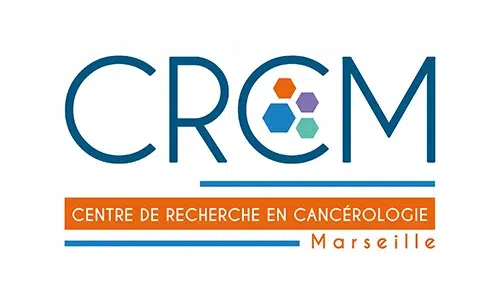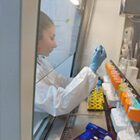The Epithelial Stem Cells and Cancer team deciphers intra-tumoral heterogeneity during the various stages of carcinogenesis, from tumor initiation to metastasis, in order to prevent or circumvent therapeutic resistance.
Our understanding of cancer is being transformed by the exploration of clonal diversity, cellular plasticity, drug resistance, and the spatial and temporal evolution of tumors. It is now well accepted that tumors are guided by an evolutionary process, driven at the cellular level by genetic and epigenetic alterations. This evolution generates intra-tumoral heterogeneity, which explains both tumor progression and therapeutic resistance.
Objectives of our project
Our team project aims to better understand intra-tumor heterogeneity in order to abolish tumor progression, by :
- Intercepting the source of tumor heterogeneity in the early phases of oncogenesis.
- Understanding the dynamics of transition between cellular states to overcome therapeutic resistance.
- Characterizing the influence of the microenvironment on cell plasticity.
Methodology
To answer these questions, we will use the scientific expertise of various team members in two tissue models:
- The human mammary gland
- The anorectal transition zone
Breast cancer program
Our team has pioneered the discovery and characterization of normal and cancer stem cells from the mammary epithelium(Ginestier et al., Cell Stem Cell, 2007; Charafe-Jauffret et al., Cancer Res., 2009; Morel et al., Nature Med, 2017).
We are continuing our efforts by developing research projects aimed at deciphering the molecular mechanisms regulating cellular plasticity. The aim is to identify new therapeutic targets and develop therapies to intercept the early phases of oncogenesis and identify vulnerabilities in the cellular states that sustain disease progression (tumor relapse, metastasis).
All these research programs are part of a translational research strategy that includes the development of innovative tools:
- Functional screen
- Primary tumor xenograft bank
- Lineage tracing
- Organoid culture
- scOMICs and spatial-OMICS

The projects
Our team was a pioneer in the discovery and characterization of breast cancer stem cells (CSCs ) (Ginestier et al., Cell Stem Cell, 2007; Charafe-Jauffret et al., Cancer Res., 2009). We are continuing our efforts by developing research projects aimed at deciphering the molecular mechanisms regulating CSC biology.
The aim is toidentify new therapeutic targets and develop anti-CSC therapies. All these research programs are part of a translational research strategy including the development of innovative tools(functional screen, primary tumor xenograft bank).

Transition zones represent an abrupt transition between two types of epithelium and are found in many areas of the body, such as between the esophagus and stomach, at the cervix and between the anal canal and rectum. These regions are prone to develop frequent cancers with a very poor prognosis in humans and mice, presenting a strong metastatic tendency. This makes the study of these areas particularly interesting.
Unfortunately, current knowledge does not allow us to precisely define the molecular mechanisms involved in the tumorigenesis of these transition zones, nor in their metastatic process.
Our team uses a variety of molecular, biochemical, flow cytometry and three-dimensional cell culture techniques, as well as genetically modified mouse models, to better characterize these zones.

Team news
Featured publications
06/2022
Richart L, Picod-Chedotel ML, Wassef M, Macario M, Aflaki S, Salvador MA, Héry T, Dauphin A, Wicinski J, Chevrier V, Pastor S, Guittard G, Le Cam S, Kamhawi H, Castellano R, Guasch G, Charafe-Jauffret E, Heard E, Margueron R, Ginestier C.
05/2021
Mitoyan L, Chevrier V, Hernandez-Vargas H, Ollivier A, Homayed Z, Pannequin J, Poizat F, De Biasi-Cador C, Charafe-Jauffret E, Ginestier C, Guasch G.
10/2019
Arfaoui A, Rioualen C, Azzoni V, Pinna G, Finetti P, Wicinski J, Josselin E, Macario M, Castellano R, Léonard-Stumpf C, Bal A, Gros A, Lossy S, Kharrat M, Collette Y, Bertucci F, Birnbaum D, Douik H, Bidaut G, Charafe-Jauffret E, Ginestier C.
02/2017
Jo S, Das S, Williams A, Chretien AS, Pagliardini T, Le Roy A, Fernandez JP, Le Clerre D, Jahangiri B, Chion-Sotinel I, Rozlan S, Dessez E, Gouble A, Dusséaux M, Galetto R, Duclert A, Marcenaro E, Devillier R, Olive D, Duchateau P, Poirot L, Valton J.
05/2017
Morel AP, Ginestier C, Pommier RM, Cabaud O, Ruiz E, Wicinski J, Devouassoux-Shisheboran M, Combaret V, Finetti P, Chassot C, Pinatel C, Fauvet F, Saintigny P, Thomas E, Moyret-Lalle C, Lachuer J, Despras E, Jauffret JL, Bertucci F, Guitton J, Wierinckx A, Wang Q, Radosevic-Robin N, Penault-Llorca F, Cox DG, Hollande F, Ansieau S, Caramel J, Birnbaum D, Vigneron AM, Tissier A, Charafe-Jauffret E, Puisieux A.
02/2017
McCauley HA, Chevrier V, Birnbaum D, Guasch G.


Labels, Funding and Partners
Like others, they were part of the team. Thank you to all those who have contributed to CRCM's excellence and impact.







































